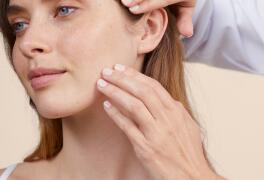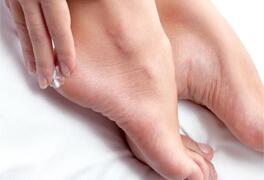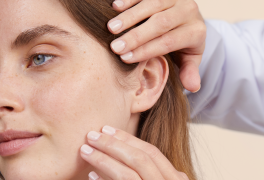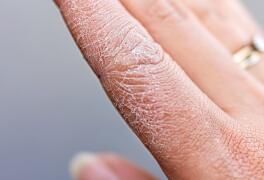EXPERT’S NOTEBOOK
Dry skin
WHAT IS DRY SKIN?
It all depends on the degree of dryness. It is possible to have healthy skin that is “naturally dry”. Dry skin requires careful analysis. Rare ichthyosis should be ruled out first and atopic dermatitis should be treated early.
If your skin problem is isolated, you can correct it by eliminating harsh cleansing products and using a moisturiser.
If this is not the case, your dermatologist will be able to advise you on a specific treatment and specific moisturising measures.

Playing YouTube videos requires the use of cookies in order to offer you targeted advertising based on your browsing For more information, please visit YouTube's « cookie » policy.
You have rejected Youtube's cookies and therefore you cannot view the video.
You can change your choices by clicking on « Cookie Settings » and accept Youtube's cookies to enable the video.
You can change this setting and withdraw your consent at any time.
Dermo-cosmetic products and treatments
Not all moisturisers act in the same way. When it comes to active ingredients, there are three main ways of hydrating the skin:
- The occlusive way, using products that are usually very greasy, e.g. petroleum jelly, which form an occlusive film on the surface of the epidermis and keep the water inside the stratum corneum.
- The emollient way, using formulas based on glycerine, urea or lactic acid that provide skin with natural hydrating components.
- The physiological way, using formulas containing fatty acids, sterols or ceramides, which provide lipids similar to the lipids in the surface layer of the epidermis, to compensate for deficits.
The researchers who develop these products usually combine several active ingredients to optimise the levels at which they act.
Your dermatologist will help you select the product or range of products best suited to your condition.
In any case, remember that regular use is necessary: moisturisers must be applied daily to be effective.
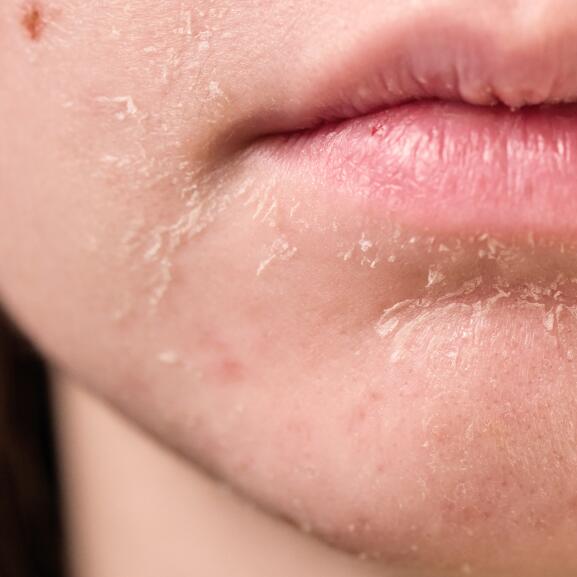
Ichthyosis
Ichthyosis is a condition characterised by abnormally dry skin with thickening of the epidermis, continuous scaling, and formation of large scales.
Xerosis
A “ simple ” dry skin type is known as xerosis. Some people naturally have drier skin than others, and this will become more pronounced as you age. Drying factors in the environment include dry cold in winter, but also the wind and sun.
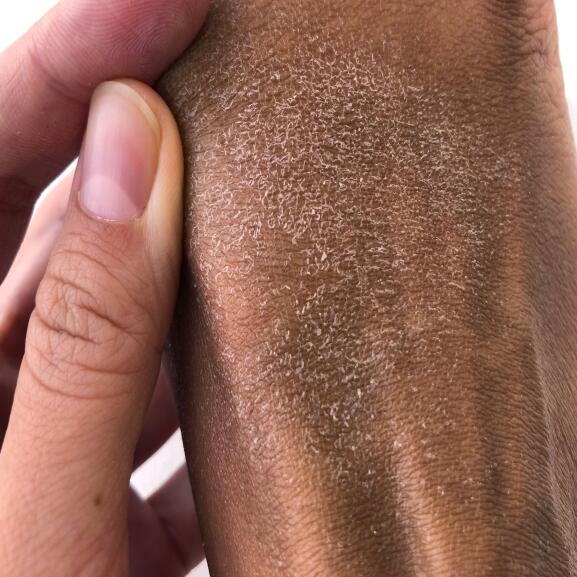
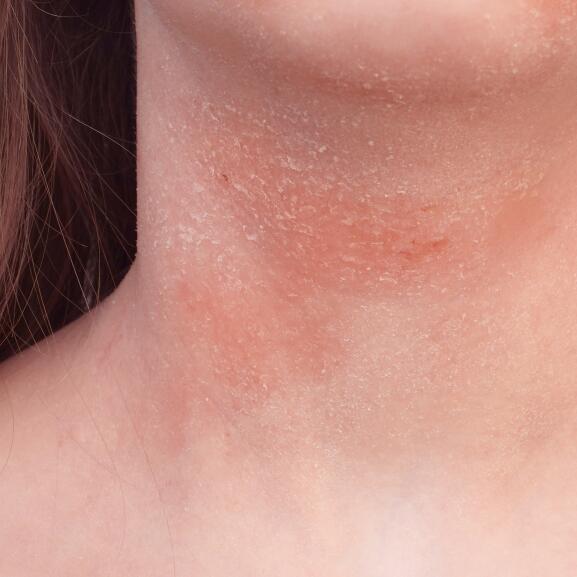
Eczema
With eczema, and especially with atopic dermatitis, the skin is pale and dry.
In rare cases, dietary deficiencies (of vitamins, magnesium or fatty acids) can aggravate dry skin issues.
Our expert answers your questions
Living better with dry skin
" Common ” dry skin These are the most common. Several factors are involved: age (especially on the arms and legs), climatic conditions (dry cold in winter, wind and sun), hygiene products that contain surfactants with an excessively aggressive detergent function, etc.
Pathological dry skin First of all, a precise diagnosis must be made, if only to eliminate an isolated skin problem that can be corrected simply (by eliminating aggressive products and using a moisturising cream). Your dermatologist will then advise you on the appropriate treatment for your dry skin.
Yes, but not just water: we cannot rehydrate the superficial layer of the epidermis simply by drinking water or by wetting the skin – lipids (fats) are also essential for retaining water.
Yes. Sun exposure is an attack (burn) which the epidermis reacts to by producing more pigment (a tan) and thickening: the dryness observed is temporary due to increased water loss and the thickening.
Yes. Some domestic water supplies have a high limescale content: this is known as “hard” water. They can increase the drying effect of skincare products. You can soften water by using special devices or compensate for hard water by using ultra-rich products.
The aim is to nourish and hydrate the skin by limiting damage and irritation. When showering, avoid soap and opt for ultra-rich cleansers or gels enriched with protective and hydrating ingredients. Emollient skincare has an important function, not only to hydrate and nourish the skin, but also to ensure the epidermis is intact, which is essential for its protective barrier function. It is important that you apply these treatments regularly, ideally every day.
Discover our solutions
For dry skin
Our treatments for dry skin
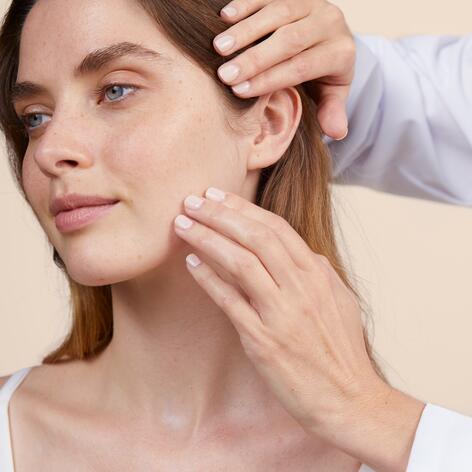
NEWSLETTER
We’re always here for your skin!
All our tips for taking care of your skin day to day.
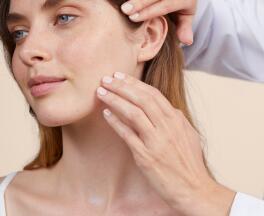
Find out more
Read advice from our experts
Which skin care routine should you adopt?
Identify what it really needs with the help of our experts and discover the most suitable skin care routine for you.

